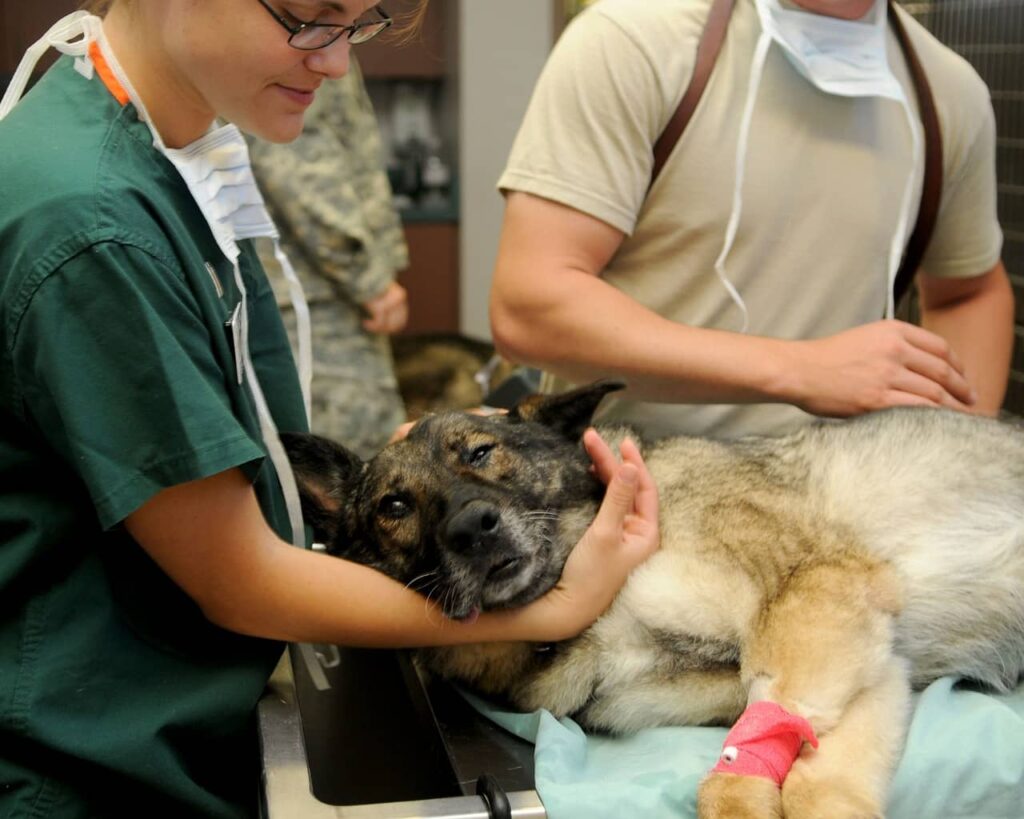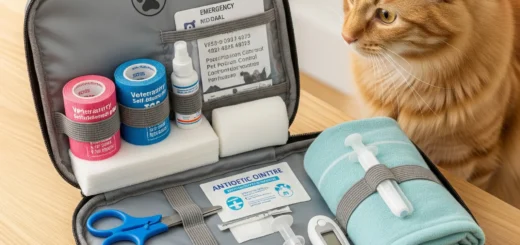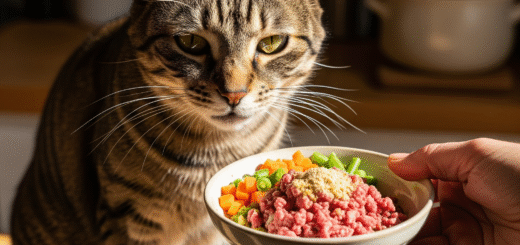All the Best Pet Care Tips for a Happy, Healthy Pet

You want the right care for your animal. Whether you are an experienced pet parent or just starting out, understanding how to provide the best pet care is crucial. Nutrition, exercise, regular vet visits, and grooming all play a crucial part in your pet’s psychological and physical well-being.
It is imperative to understand that every animal, whether a playful puppy, an energetic kitten, or a senior cat or dog, will benefit from training special attention. The goal is to live a long, healthy, and happy life. Caretaking of your pet is vital to its well-being. In this article, pet care is explored in detail.
By following these tips and insights, you’ll have the knowledge and confidence to provide your pet with the finest care. You’ll also create a supportive and healthy environment for your pet.
The Cornerstone of all the best pet care tips: Proper Nutrition
One of the key pillars of pet care is proper nutrition. Pets require a balanced, species-appropriate diet to maintain their health, energy, and overall well-being.
Understanding Your Pet’s Nutritional Needs
Nutritional needs vary from pet to pet depending on their age, weight, activity level, and pre-existing health conditions. Choosing pet food that aligns with these needs is imperative to keep them healthy.
- Protein: Pet food is based on protein. It supports muscle growth and repairs tissues. Consuming animal-based proteins such as chicken, beef, lamb, and fish is ideal. Select high-quality meat sources, not by-products or meat meals.
- Fats: Fats are necessary for energy, coat health, and vitamin absorption. Omega-3 and Omega-6 fatty acids help maintain a shiny coat and support brain and eye health.
- Carbohydrates: Though not as crucial as proteins and fats, carbohydrates provide energy and fiber, aiding digestion. Whole grains like brown rice and sweet potatoes are nutritious carb sources.
- Vitamins and Minerals: Vitamins like A, D, and E are essential for immune function, while minerals like calcium and phosphorus contribute to healthy bones and teeth.
- WATER: FRESH, CLEAN WATER IS VIRTUAL FOR HYDRATION. WATER: FRESH, CLEAN WATER IS VIRTUAL FOR HYDRATION. Dehydration can lead to serious health problems, such as kidney disease, urinary tract issues, and lethargy.
Special dietary considerations
All the Best Pet Care Tips emphasize that a pet’s dietary needs evolve with age and health status. Senior pets often require easily digestible food with fewer calories and fats since their activity levels tend to decrease. Nutrients like fiber, omega-3 fatty acids, and antioxidants support joint health, cognitive function, and immune strength. All the Best Pet Care Tips for senior pets often include diets enriched with glucosamine and chondroitin, which help prevent arthritis and other musculoskeletal issues and support their mobility and comfort.
Pets with health conditions, such as kidney disease, diabetes, or heart issues, may require specialized diets. Those with diabetes may require a low-carb, high-protein diet to maintain healthy blood sugar levels, while those with kidney disease may benefit from meals low in protein, phosphorus, and sodium. All the best pet care tips emphasize the importance of consulting a veterinarian to ensure that any dietary changes are tailored to your pet’s medical needs and conditions. For example,
- Puppies and kittens: They need protein and fat to grow and develop. Foods rich in DHA (docosahexaenoic acid) are essential for brain development.
- Senior Pets usually need low-fat, high-fiber diets to maintain a healthy weight. All the best pet care tips recommend adding supplements like glucosamine to your pet’s diet to support ageing joints and maintain mobility as they age.
- Pets with Health Issues: If your pet has allergies, diabetes, or other medical conditions, talk with your veterinarian about food with limited ingredients or specialized diets.
Selecting the Right Pet Food
Always read the label carefully when choosing pet food. High-quality ingredients, such as real meat, whole grains, and vegetables, should be listed first. Avoid foods with excessive fillers, such as corn and soy, which contain fewer nutritional benefits.
Consult your vet if you’re uncertain which food is right for your pet. Their recommendations will be based on your pet’s needs.

Exercise and Mental Stimulation: Crucial for Pet Care
Exercise and mental stimulation are as essential as proper nutrition in pet care. All the best pet care tips emphasize that proper nutrition and regular exercise are critical for maintaining a healthy body and mind in pets, whether dogs, cats, or other animals.
Why does exercise matter for pets?
Exercise is key to preventing obesity, promoting mental health, and physically strengthening your pet. Pets that don’t get enough exercise may develop behavioral problems such as chewing, digging, and excessive barking or meowing.
Regular exercise benefits:
- Prevents Obesity: Without exercise, pets can gain weight, which puts them at risk for a variety of health issues, including diabetes, joint pain, and heart disease.
- Maintains Healthy Joints: Regular exercise keeps your pet’s joints lubricated, reducing arthritis risk as they age.
- Reduces Behavioral Issues: Pets with excess energy will likely engage in undesirable behaviors. Exercise tires them out, reducing destructive habits.
- Boosts Mental Health: Exercise stimulates the brain, reducing stress and anxiety in pets, especially those with separation anxiety or fear.
Exercise tips for dogs
Dogs, especially active breeds, require daily physical activity. Here are some tips for exercising your dog.
- Walking: All dogs need regular walks, and the length and frequency depend on their breed, age, and health. Most dogs benefit from at least 30 minutes of exercise daily.
- Playtime: Play games like fetch, tug-and-war, or hide-and-seek. These activities are a great way to engage your dog’s body and mind.
- Dog Parks: Visiting a dog park allows social dogs to interact with other dogs and burn off energy in a safe environment.
Exercise tips for cats
Cats are more independent than dogs; they need regular stimulation to stay healthy.
- Interactive Play: Use toys such as laser pointers, feather wands, and balls to engage your cat’s natural hunting instincts.
- Cat Furniture: Provide cat trees, shelves, and perches for climbing. Cats love high vantage points, and this type of furniture keeps them physically active.
- Play Sessions: Even 10-15 minutes of interactive play can significantly benefit your cat’s mental and physical health.
Veterinary Care: A Key Element in Pet Care
Routine veterinary care is the cornerstone of pet care. Regular vet visits ensure that potential health issues are caught early, vaccines are up to date, and your pet remains healthy.
The Importance of Regular Vet Check-ups
One of all the best pet care tips is scheduling regular veterinary visits. Taking your pet to the vet at least once a year helps monitor their overall health and catch any potential issues early. If your pet is elderly or has existing health conditions, more frequent checkups may be necessary. Regular vet visits are essential for vaccinations, dental care, early disease detection, and maintaining a preventive care plan tailored to your pet’s needs.
- Preventative care: Regular exams help detect potential health problems in the early stages, such as tumors, infections, and kidney disease.
- Vaccination: Your veterinarian will ensure your pet is up-to-date on all necessary vaccinations to prevent diseases like rabies, distemper, and feline leukemia.
- Parasite Control: Several common pet parasites include fleas, ticks, and heartworms. Your veterinarian must provide preventative treatment to keep parasites at bay.
- Dental Health: Dental disease is common in pets. The vet can provide dental cleanings and tips on maintaining your pets’ dental health at home.
Common Health Issues to Discuss with Your Vet
- Obesity: If your pet is overweight, ask your vet for a tailored weight management plan. Your vet can help with dietary recommendations and exercise plans.
- Arthritis: Senior pets are prone to arthritis, which can cause pain and mobility issues. Your vet can recommend pain relief and joint support supplements.
- Skin Conditions: Fleas, allergies, and infections can irritate your pet’s skin. Speak with your vet about the best treatment options.
Veterinary treatments and procedures
In addition to routine exams, your vet may recommend treatments for illnesses or injuries. Common veterinary procedures include:
- Spaying or Neutering: These are critical for controlling the pet population and can also benefit your pet.
- Surgical Interventions: Surgery may be necessary in cases of injury or certain diseases. Always follow your vet’s post-operative care instructions for optimal recovery.
Grooming: Maintaining All The Best Pet Care
Regular grooming is not only about keeping your pet clean and looking its best—it’s an essential part of pet care. Grooming involves checking your pet for abnormalities, preventing health problems, and ensuring they feel comfortable and relaxed.
Grooming for dogs.
All the Best Pet Care Tips include regular grooming for dogs to maintain their coat, nails, and overall health. Grooming keeps your dog looking and feeling great and helps prevent issues like matting nail overgrowth, and skin infections.. Here’s what you need to know:
- Bathing: All the Best Pet Care Tips emphasize the importance of proper bathing routines based on your dog’s breed and coat type. Most dogs benefit from a bath every 4–8 weeks, using a gentle, pet-safe shampoo to keep their skin healthy and free from irritation.
- Brushing: All the Best Pet Care Tips include regular brushing to maintain your dog’s coat and skin health. Brushing reduces shedding, prevents matting, and distributes natural oils for a shiny coat. Long-haired breeds often require daily grooming, while short-haired dogs typically need brushing once a week.
- Nail trimming: trimming: Long nails can be painful and cause difficulty walking. Trim your dog’s nails regularly, or take them to a professional groomer.
- Ear Care: All the Best Pet Care Tips include regular ear care, especially for breeds prone to infections. Dogs with floppy ears are particularly vulnerable, so checking and cleaning their ears frequently is essential to prevent moisture buildup and irritation.
Grooming for cats
Cats are naturally clean animals, but regular grooming is still imperative, especially for long-haired breeds:
- Brushing: Brush your cat’s fur to prevent Matt and reduce hairballs. Long-haired cats require daily brushing, while short-haired cats only need it once or twice a week.
- Nail Care: Trim your cat’s claws regularly, as sharp nails can damage furniture or hurt humans.
- Ear and Eye Care: Regularly check your cat’s ears and eyes for signs of infection or irritation.
Why Grooming is Important
- Health Check: Grooming allows one to check for signs of illness or injury, such as lumps, skin infections, or parasites.
- Bonding Time: Grooming is a great way to spend quality time with your pet, strengthening your bond and reducing their stress levels.
- Comfort: Regular grooming ensures your pet feels comfortable, reducing the likelihood of matting, skin irritation, and other issues arising from lack of care.
Mental Health and Emotional Well-being: Ensuring the Best Pet Care
While physical health is essential, your pet’s emotional and mental well-being is equally critical in providing the best care. Pets, particularly dogs and cats, experience a wide range of emotions and need appropriate care to remain emotionally stable.
Signs of Stress in Pets
- Pets can suffer from anxiety and stress for various reasons, such as changes in routine, an unfamiliar environment, or separation from their owners. Stress signs include:
- Excessive barking or meowing
- Destructive behavior (chewing, scratching).
- Excessive grooming and licking
- Loss of appetite
- Hiding or withdrawing
Ways to Manage Stress in Pets
- Create a safe space: Ensure your pet has a quiet, comfortable place to retreat when overwhelmed.
- Consistent Routine: Pets thrive on a routine. To provide stability, try feeding, exercising, and playing with your pet simultaneously daily.
- Mental stimulation: Interactive toys, puzzle feeders, and engaging games can keep your pet mentally sharp and calm.
- Desensitization and Counter-Conditioning: If your pet experiences anxiety in certain situations (e.g., being left alone or during loud noises), consult a trainer or behaviorist to study behavior.

Conclusion:
All the Best Pet Care Tips involve more than just feeding and sheltering your furry companion—they require a deep understanding of your pet’s pet’s unique needs. Every detail contributes to your pet’s overall well-being, from balanced nutrition and regular exercise to routine veterinary checker’s proper grooming. Staying informed and proactive is one of the Best Pet Care Tips you can follow to keep your pet healthy, happy, and emotionally fulfilled.
By following All the Best Pet Care Tips, you go beyond simply meeting your pet’s basic needs—actively enhancing their quality of life. Every thoughtful action makes a difference, from health and hygiene to emotional well-being. Remember, our pets rely on us completely for their care, comfort, and happiness. Giving them your best means giving them a life filled with love, security, and joy.

















Recent Comments